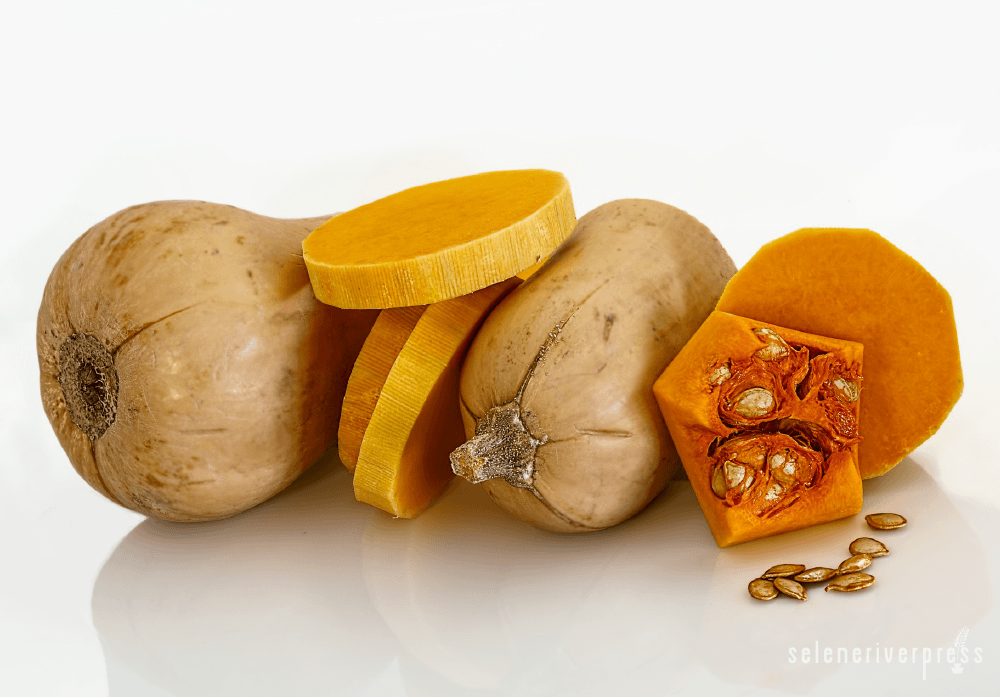Have you noticed some shifting going on at your local farmers’ market? Not only are we starting to add more oomph to our top layers, but the vegetables are getting heftier too. Take for example the difference between those thin-skinned summer squash that have been so easy to come by and the ever more present winter squash. (Is it possible we start looking like the vegetables in season, just like we start resembling our pets?) ;)
Anyway, I welcome the chance to grab a hoodie in the early morning and evening. I also cannot wait to start gobbling up some winter squash. This self-healther happens to think it’s far superior to those bland summer squash. No offense, zucchini, but your seasonal replacements, aka winter squash, are prettier to look at (inside and out), way more flavorful, and packed with nutritious goodness.
The nourishment in winter squash is quite impressive. Though each variety is different, here is a general list:
- Vitamins A, B6, C, and E
- Minerals such as magnesium, potassium, and manganese
- Fiber, especially soluble
Why on earth is it called winter squash when it’s available in the fall? The name has more to do with the fact that it keeps well through the winter months. When you harvest and store squash properly, it can sustain you throughout the winter—and then some. During those short, cold days when you long for something fresh from the garden, winter squash can satisfy that craving.
From pumpkin to butternut to acorn squash, there are a great many varieties to choose from. So if you try one you just don’t care for, don’t give up on this humble vegetable. Epicurious profiles the characteristics of a dozen different varieties in their “Visual Guide to Winter Squash.” You’ll find plenty of recipes, and the photographs will help you know what to look for on your next shopping trip.
I was introduced to the delicata through our CSA share when we were back in Wisconsin. It’s been my favorite ever since, but this fall I’m going to pick at least one new variety to try, and I encourage you to do the same.
Some people don’t think winter squash is as versatile as summer squash, but I would have to disagree. The butternut in particular seems to be the star ingredient in quite a range of recipes—soups, enchiladas, quick breads, and pie filling…you name it. If you don’t believe me, just head on over to the Internet and dig around. You’ll be quickly convinced.
Don’t let anyone squash your love for this vegetable! If you want proof that they’re totally worth your admiration, check out these tasty recipes from Chef Briana Nervig right here at SRP:
- Brown Rice Risotto with Oysters, Butternut Squash, and Herbs
- Kale, Sausage, and Winter Squash Hash
- Stuffed Dumpling Squash with Bacon, Pear, and Rosemary




Paula, if you’ve never tried pesto on your squash, I highly recommend it!
I haven’t tried that, Sam. You put it on both summer and winter squash?
I tried it on buttercup squash, and it was really good.
Hmmm, I’ll have to give it a try, Sam. Thank you for the tip! :)